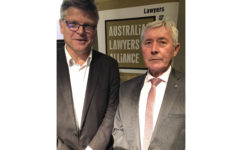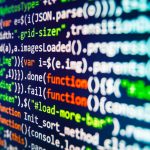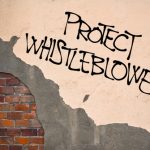Drop the Collaery Prosecution: An Interview With Australian Lawyers Alliance’s Greg Barns

As Australian barrister Bernard Collaery is set to stand trial in the ACT Supreme Court over charges of conspiring to communicate secret information, the Australian Lawyers Alliance (ALA) has stepped forward and called for his prosecution to be dropped.
With the approval of attorney general Christian Porter, the Commonwealth Director of Public Prosecutions (DPP) laid charges in May 2018 against Collaery and his client, Witness K, over revealing information regarding an ASIS operation that involved the bugging of the Timor Leste government.
Under the cover of an Australian aid refurbishment program, Witness K was charged with bugging the Timor Leste-East Timor cabinet office, so Australia could gain the upper hand in treaty negotiations over oil and gas fields in the Timor Gap.
An ever-broadening reach
As the recent Four Corners investigation explained, while Witness K has decided to plead guilty, Mr Collaery will fight the charges in a trial conducted in partial secrecy, under the provisions of the National Security Information Act 2004 (Cth) (the NSI Act).
Ostensibly designed to prevent prejudicing national security without interfering with the administration of justice, the NSI Act sits amongst a great pile of counterterrorism-national security legislation passed post-9/11, which has gradually whittled away at citizens’ rights.
The ALA has raised concerns about the scope of this legislation, which hasn’t been accompanied by any corresponding rights protections. And the alliance has long warned about the application of the NSI Act, as it leads to a lack of transparency and accountability in proceedings.
Another recent example of national security legislation being turned on the citizenry is the search warrant executed at the ABC raid. It allowed AFP agents to “add, copy, delete or alter” information on computers, which is a provision contained in 2018’s counterterrorism Assistance and Access Bill.
The rule of law
Mr Collaery is a member of the ALA, which is a national association aimed at upholding “justice, freedom and the rights of the individual”. Last year, the ALA presented Collaery with its Civil Justice Award for his work in support of the people of Timor Leste, which began prior to independence.
ALA criminal justice spokesperson and barrister Greg Barns has long spoken out on the importance of the rule of law, which he asserts Collaery’s case undermines, as it’s sending a clear message that those who blow the whistle on illegal government activities will be sent to prison for their trouble.
Earlier this year, the Rise of the Right was published. Authored by Mr Barns, the book posits that liberal values are under threat in this country. And the barrister details in its pages that a chief culprit in the decline of Australian liberal democracy is the Liberal Party.
Sydney Criminal Lawyers spoke to Greg Barns about why the prosecution of Mr Collaery is not in the public interest, the implications of the proceedings for the legal profession, and the dangers of the rising security state.
Firstly, the Australian Lawyers Alliance is calling for the charges to be dropped against Mr Collaery, as prosecuting the lawyer is not in the public interest. Mr Barns, why would you say the prosecution isn’t a public interest matter?
It’s hard to see how there’s any public interest when Mr Collaery and Witness K revealed that Australian security services had committed serious crimes in relation to East Timor. Namely, bugging the East Timorese cabinet room and government.
It was a case where you had one of the world’s richest countries, spying on one of the world’s poorest countries for financial gain, that is in relation to negotiations over oil and gas.
What Bernard Collaery did is in the same boat as Andrew Wilke and others over the years in Australia, who’ve revealed wrongdoing or deception. There’s never any public interest, in my view, of prosecuting such people.
So, why do you believe the Commonwealth DPP is pursuing the matter with attorney general approval?
Who would know? But, it is hard to see how it would fit one of the criteria that the Commonwealth DPP has to use and that is that it’s in the public interest.
In your understanding what sort of impact could the government’s decision to pursue matters against Mr Collaery have on the rule of law in this country, and indeed, the legal profession?
This is the security state in this country running amuck. As Paul Keating said in the last election, the “nutters” are in charge. And I think he was right.
It means that lawyers, who uphold the rule of law, are now under threat from the security state. And that’s very dangerous.
In fact, I wrote a book earlier this year called the Rise of the Right, which is about the decline of the rule of law in Australia.
And in that book, I talked about a number of examples over the last couple of decades, where the rule of law has been undermined by these threats and attacks on lawyers. And this is just another example.
The trial of Mr Collaery is going to be carried out in partial secrecy, which you’ve stated is problematic. What sort of issues does this secrecy give rise to?
You can only put it down to the paranoia of the security state. We have in this country an outrageous piece of legislation called the National Security Information Act, which allows for the security state to put a blanket over what should be public proceedings on the basis of national security.
I can tell you now, the veil of national security, which is thrown over evidence on far too many occasions in this country, is yet again being used in circumstances where you have some of the most senior retired judges in this country – like Stephen Charles from the Victorian Court of Appeal and others – saying that this is a very troubling event.
You’ve got a lawyer on trial for revealing the wrongdoing of the Australian security state, and we’re not allowed to know about it. It’s what you get under authoritarian regimes.
You don’t expect it to happen in a liberal democracy. But, it is part of the decline of the rule of law in our country.
The NSI Act is one of over 75 pieces of legislation that have been passed in the name of counterterrorism and national security since 9/11. Together, these bills, which have been passed with bipartisan approval, have been incrementally eroding Australians’ civil liberties.
How would you say the political and social climate has changed in Australia due to this ongoing trend of passing rights eroding legislation?
You’ve put that very eloquently. And you’re right. It’s now over 75 pieces of legislation since 9/11. And the impact is a more secret society.
A society in which there is a direct threat to whistleblowers, a direct threat to lawyers and others, who believe that it is in the public interest to know what’s happening in our government.
And these laws are abused. We’ve been warning at the ALA for some years that anti-terror laws will be abused. And they are abused, routinely.
But, of course, it’s both major political parties in Australia that have signed up to this post-9/11 terror state. And because we don’t have a charter of rights or a bill of rights, it makes it even more problematic.
Mr Collaery and Witness K have been charged over disclosing information about the ASIS bugging operation in Timor-Leste. What’s your opinion on how the Australian government acted in this instance?
What the Australian government did was appalling. This was the poorest nation in the world. And the Australian government acted like a neo-colonial bully, which, of course, it has done in relation to Nauru and Papua New Guinea in the context of asylum seekers.
It decides that it thinks it’s acceptable to commit crimes in order to secure some advantage in financial negotiations over oil and gas. It is an egregious example of toxic neo-colonialism.
And lastly, Mr Barns, as a barrister who’s been involved in controversial cases, what are you expecting to take place here? And what should happen?
You would hope that there would be some sense and Mr Collaery would be discharged. He’s an Australian hero, as far as I’m concerned. The ALA has been very proud to support him.
We would like to see other legal groups around Australia be more public in their support. The Law Council of Australia has an obligation to publicly support him, because this is an Australian lawyer of some eminence, who is now under threat, because he has dared to take on the Australian security state.
We should see very public support from the Law Council and other groups in Australia, as they join with the ALA.







